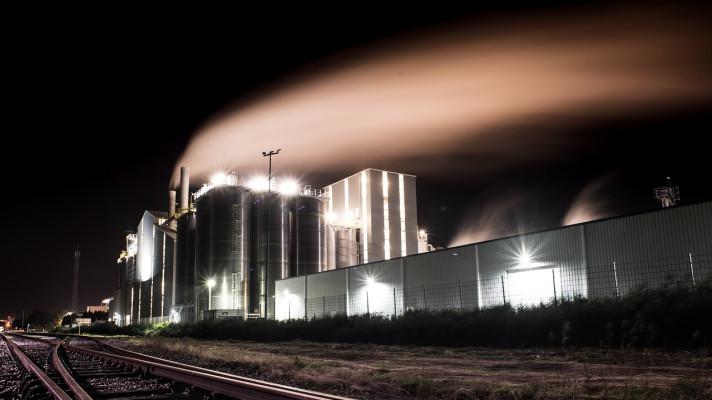Beefing up compliance
Eleven years after the IPPC Directive entered into force, the European Commission is preparing proposals to improve this key legislation for minimising industrial pollution. The directive brought in integrated permits for industrial installations, which currently concern some 52,000 plants across the EU, and introduced the notion of Best Available Techniques (BATs). The Commission is now looking to address shortcomings in the way member states put the directive into practice.
Industrial production processes generate much of Europe’s pollution, including greenhouse gases, acidifying substances, wastewater and waste. Until 1996, the EU tackled this pollution with legislation targeting impacts in specific sectors such as air and water. Thanks to the integrated pollution prevention and control (IPPC) Directive, member states have to address all aspects of a plant's environmental impact – from emissions to raw materials, and noise to energy efficiency – under a single penalty system.
The integrated permitting approach, which covers some 30 industrial sectors, was already in use in several European countries. Under the IPPC it spread throughout the EU, ensuring the highest level of protection for the environment as a whole.
Best Available Techniques
A key achievement of the directive is the BATs, Best Available Techniques. Licensing authorities will only issue a permit if an installation meets certain requirements identified in the BATs, minimising pollution or preventing it altogether. Each sector – refining, incineration, steel and so forth – has specific obligations under a particular BAT, and specific levels of allowable emissions. To assist the licensing authorities and companies to determine BATs, the Commission organises an exchange of information between experts from EU member states, industry and environmental organisations. The Commission then adopts and publishes BAT Reference Documents (BREFs), which are developed by the European IPPC Bureau in Seville, Spain. Word of their usefulness and of the success of integrated permitting is spreading beyond EU borders. China will learn more about Europe’s industrial-pollution permits in a major seminar scheduled for March 2008. Russia and India have also expressed interest in the ideas.
Amended twice since it came into force, the IPPC Directive (and related legislation on industrial emissions) was recently the subject of an extensive two-year review. The reviewers concluded that many member states are failing to implement the directive correctly, as the licensing authorities that set permit conditions have been given excessive flexibility. They also noted that if BATs are not implemented properly, member states will miss their goals in other EU legislation and policies such as the Air Pollution Thematic Strategy.
Compliance deadline
A further problem is that most member states are late implementing the directive. The deadline for full compliance for all installations was 30 October 2007. Despite good progress in this field over the last year, few EU member states succeeded in meeting the deadline. The reviewers also criticised the quality of certain permits that were issued, since they did not follow the BATs.
In December 2007, the Commission will propose that the directive be strengthened and BATs placed at the heart of the directive. It would also like to see reduced flexibility for permit licensing, greater transparency for the process of setting emission values and better monitoring of the directive’s implementation.
The Commission’s wish list includes a review of permits each time a BREF is revised and annual inspections of facilities. It also has plans to recast all EU industrial emissions legislation, including the IPPC and six other directives, into a single directive on industrial emissions that could be in force by 2012.
source: http://ec.europa.eu/environment
